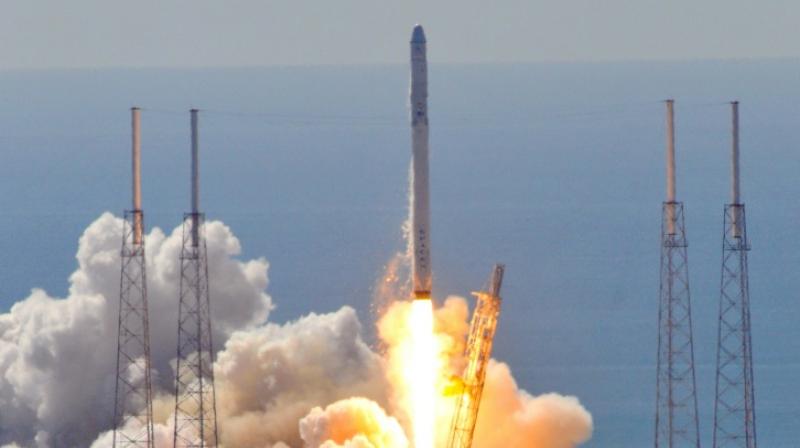SpaceX launches, lands rocket for first time since Sept blast

SpaceX blasted off its Falcon 9 rocket today, marking its first return to flight since a costly and complicated launchpad explosion in September.
"Liftoff of the Falcon 9," a SpaceX commentator said as the tall white rocket launched from Vandenberg Air Force Base in California at 9:54 am (local time), carrying a payload of 10 satellites for Iridium, a mobile and data communications company.
Moments after the Falcon 9 soared into the sky, the rocket's two sections separated as planned, sending the satellites to orbit and the tall portion, known as the first stage, of the rocket back to Earth.
Cheers erupted at SpaceX mission control in Hawthorne, California as live video images showed the first stage powering its engines and landing steady and upright on a platform marked with an X in the Pacific Ocean.
SpaceX has successfully landed multiple rockets this way, on both land and water, as part of its effort bring down the cost of space flight by re-using multimillion dollar components instead of jettisoning them in the ocean after launch. The platform, or droneship, was labeled "Just Read the Instructions."
"This is fantastic," a SpaceX spokeswoman said. Though the landings garner plenty of excitement, SpaceX's primary mission was to safely deliver the payload of satellites to low-Earth orbit.
It was the first in a series of launches planned to upgrade Iridium's global communications network. The USD 3 billion project aims to send 81 satellites to low-Earth orbit in coming months. The stakes for SpaceX were high after a pair of accidents.
September's blast destroyed a USD 200 million satellite Facebook had planned to use to beam high-speed internet to Africa. Another explosion in June 2015 two minutes after liftoff obliterated a Dragon cargo ship packed with goods bound for the astronauts at the International Space Station.

